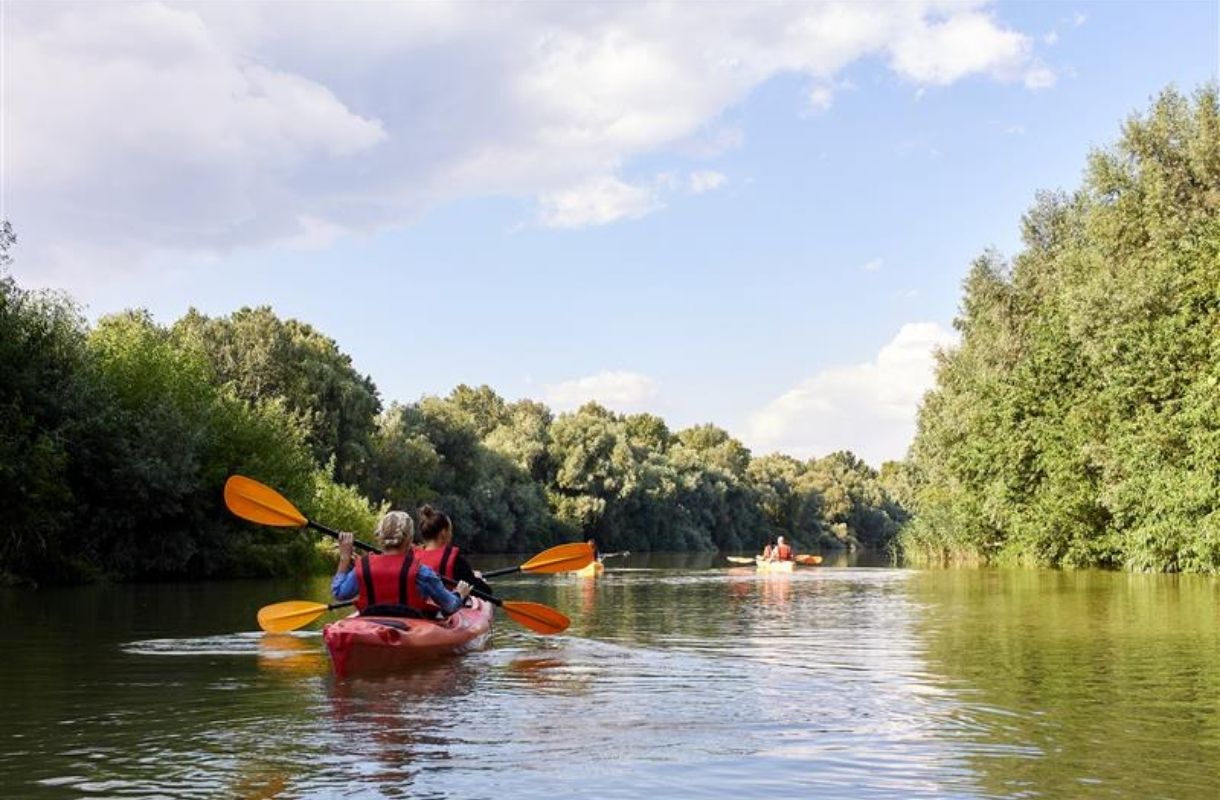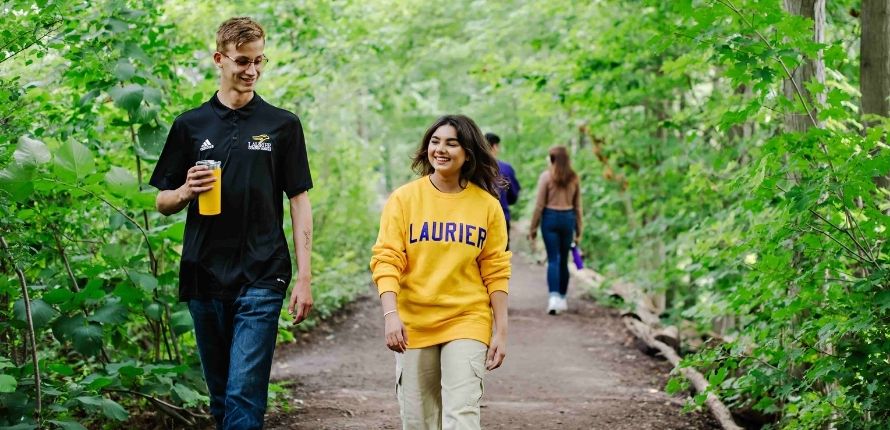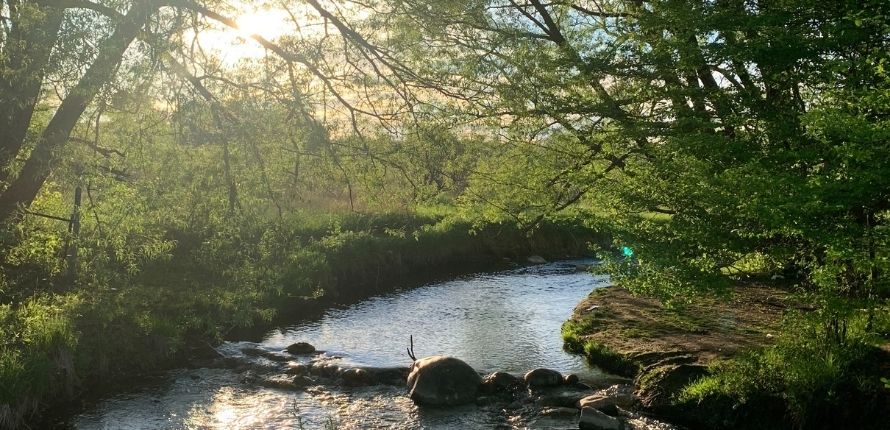Search for academic programs, residence, tours and events and more.
April 10, 2025
A growing number of Canadian healthcare providers are writing prescriptions that can’t be filled at a pharmacy. Nature prescription programs, or written directives from healthcare professionals to visit natural settings, are becoming increasingly popular. Spending as little as two hours per week in nature is linked to improved mental health and mood, lower levels of stress and physical wellness.
“With a growing body of evidence that contact with nature improves health and well-being, the health and conservation communities are coming together to find innovative ways to address chronic health issues,” says Chris Lemieux, assistant professor and John McMurray Research Chair in Environmental Geography at Wilfrid Laurier University. “Natural settings have the potential to provide an accessible and low-cost supplement to traditional medical care if people are aware of the benefits nature offers.”
In Canada, more than 15,000 healthcare professionals are already prescribing nature to patients. A new study co-led by Lemieux found that although 92% of respondents were unaware of the concept, 76% would “fill” a nature prescription from their healthcare provider.

Lemieux’s research team, including Dr. Melissa Lem, a Vancouver-based physician and director of PaRx, and Laurier’s Catherine Reining and Calin Lazarescu, recently published their findings in the journal Wellbeing, Space and Society. Their study is the first-ever examination of public interest in, and barriers and enablers to, nature prescription programs in Canada. It represents a significant contribution to the growing body of research on nature-based health interventions.
While the recommendation to be in nature may seem easy to act upon, the data suggests otherwise.
Of the more than 3,500 research participants surveyed by Lemieux and his colleagues, several groups, including young people and newcomers to Canada, reported obstacles to accessing nature such as transportation, cost, and lack of time.
“Identifying these barriers presents us with an opportunity to create change so that everyone has access to the health benefits that nature provides,” says Reining, a lab instruction coordinator at Laurier and PhD student at Western University. “Nature prescriptions offer one approach.”

Natural spaces are a short distance from Laurier's campuses.
At a local level, Lemieux is doing his part to help the Laurier community get out into nature. Recognizing that entrance fees may be a deterrent to visiting conservation areas, he partnered with the Grand River Conservation Authority (GRCA), the Laurier Library and Laurier’s Sustainability Office to secure five annual GRCA memberships. Each membership admits up to six people to the GRCA’s 12 conservation areas. Memberships are available to Laurier students, faculty and staff for day-long use at no charge and can be signed out through Omni or the Laurier Library help desk.
GRCA areas located near Laurier’s campuses include Brant Conservation Area, which opens May 1, and Laurel Creek in Waterloo, which is open year-round. Visitors can hike, canoe and kayak, swim and picnic.
“I hope there is uptake for the memberships among Laurier community members, especially students,” says Lemieux. “This is just one of the many ways people and organizations can work together to support health and well-being in creative ways.”
On a broader scale, Lemieux sees potential for health providers and conservation management organizations – both entities with high levels of public trust – to raise awareness of the health benefits of nature and opportunities for low-barrier access.

“Natural settings have the potential to provide an accessible and low-cost supplement to traditional medical care if people are aware of the benefits nature offers.”
Chris Lemieux, associate professor and John McMurray Research Chair in Environmental Geography, Wilfrid Laurier University
Parks Canada and Ontario Parks recently introduced Canoo, a mobile app that helps new Canadians celebrate their citizenship by providing free admission to all places administered by Parks Canada nationwide and most of Ontario’s operating provincial parks for one full year. Parks Canada also offers newcomers and youth under the age of 17 one year of free access to their sites. Lemieux says opportunities also exist within the insurance industry, allowing employers to offer health benefits for nature prescription programs, park admission, or outdoor fitness equipment.
"We know spending time in nature is good for our health," says Lemieux. "By working together across healthcare, conservation and policy, we can make nature prescriptions a practical and accessible way to support well-being."

Columbia Lake Trail, Waterloo.